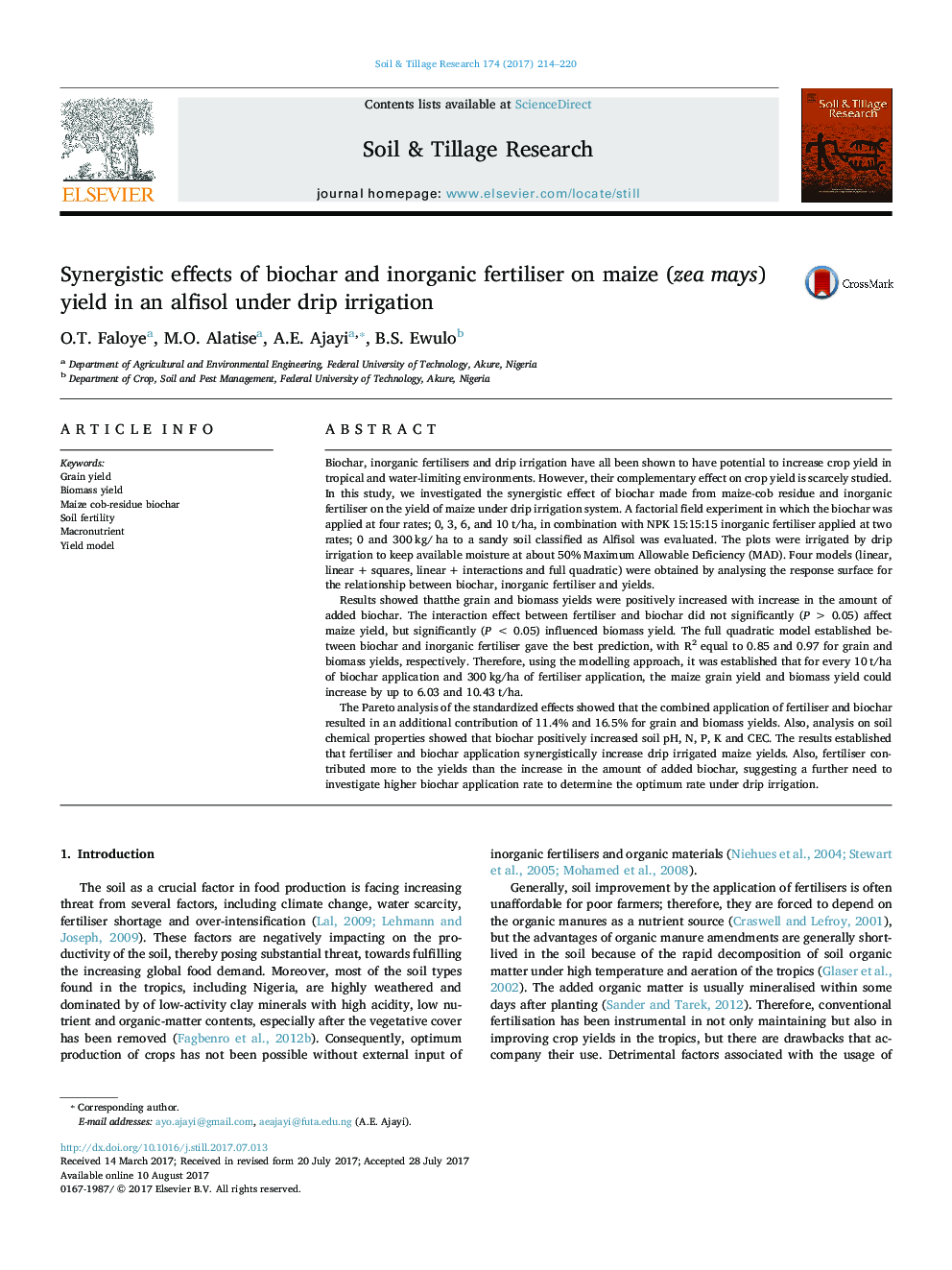| کد مقاله | کد نشریه | سال انتشار | مقاله انگلیسی | نسخه تمام متن |
|---|---|---|---|---|
| 4927469 | 1431829 | 2017 | 7 صفحه PDF | دانلود رایگان |

- Biochar and fertiliser application increased Maize yield under drip irrigation.
- Biochar and fertiliser contributed 35.5 and 52.8% to grain yield.
- Biochar and fertiliser contributed 31.5 and 52.0% to biomass yield.
- Combined application has significant synergistic effect on grain and biomass yields.
- Maize cob biochar enhances soil nutrient retention under drip irrigation.
Biochar, inorganic fertilisers and drip irrigation have all been shown to have potential to increase crop yield in tropical and water-limiting environments. However, their complementary effect on crop yield is scarcely studied. In this study, we investigated the synergistic effect of biochar made from maize-cob residue and inorganic fertiliser on the yield of maize under drip irrigation system. A factorial field experiment in which the biochar was applied at four rates; 0, 3, 6, and 10 t/ha, in combination with NPK 15:15:15 inorganic fertiliser applied at two rates; 0 and 300 kg/ ha to a sandy soil classified as Alfisol was evaluated. The plots were irrigated by drip irrigation to keep available moisture at about 50% Maximum Allowable Deficiency (MAD). Four models (linear, linear + squares, linear + interactions and full quadratic) were obtained by analysing the response surface for the relationship between biochar, inorganic fertiliser and yields.Results showed thatthe grain and biomass yields were positively increased with increase in the amount of added biochar. The interaction effect between fertiliser and biochar did not significantly (P > 0.05) affect maize yield, but significantly (P < 0.05) influenced biomass yield. The full quadratic model established between biochar and inorganic fertiliser gave the best prediction, with R2 equal to 0.85 and 0.97 for grain and biomass yields, respectively. Therefore, using the modelling approach, it was established that for every 10 t/ha of biochar application and 300 kg/ha of fertiliser application, the maize grain yield and biomass yield could increase by up to 6.03 and 10.43 t/ha.The Pareto analysis of the standardized effects showed that the combined application of fertiliser and biochar resulted in an additional contribution of 11.4% and 16.5% for grain and biomass yields. Also, analysis on soil chemical properties showed that biochar positively increased soil pH, N, P, K and CEC. The results established that fertiliser and biochar application synergistically increase drip irrigated maize yields. Also, fertiliser contributed more to the yields than the increase in the amount of added biochar, suggesting a further need to investigate higher biochar application rate to determine the optimum rate under drip irrigation.
Journal: Soil and Tillage Research - Volume 174, December 2017, Pages 214-220